Navigating the eviction process in North Carolina can be confusing without a clear understanding of the legal steps and deadlines involved. With state laws constantly evolving and specific procedures to follow, staying compliant in 2025 is more crucial than ever.
This comprehensive guide by LeaseRunner is designed to equip North Carolina landlords with the essential legal knowledge and practical steps necessary to handle evictions efficiently and lawfully, thereby minimizing risks and protecting their investments.
Recent Legal Updates for 2025 North Carolina Eviction Laws
While the core principles of landlord-tenant law remain, legislative sessions often introduce subtle yet significant changes. For 2025, landlords should be aware of evolving statutes that may influence how they approach situations.
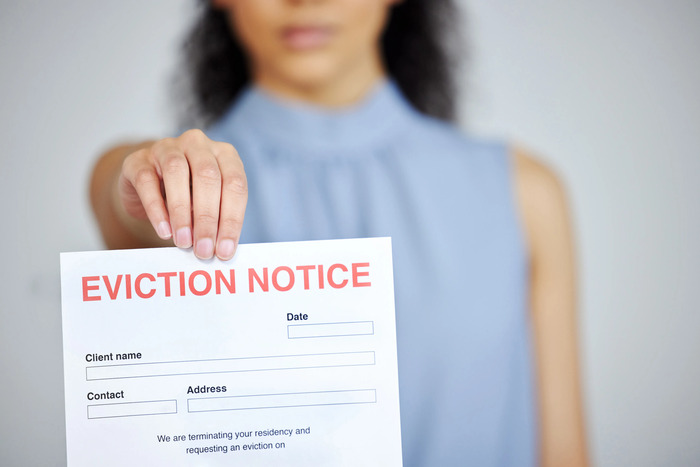
Squatter Removals (HB 96)
A notable legal update is HB 96, which clarifies how landlords can legally remove squatters from rental property. Under the new provisions, landlords can now initiate removal more quickly when someone occupies a property without a valid lease or legal right to stay. If successful, this can lead to law enforcement assisting with the removal within a much shorter timeframe, potentially within 24-48 hours.
This update does not apply to situations involving actual tenants—only unauthorized occupants who never signed a lease. Landlords must still follow standard procedures when evicting someone for nonpayment of rent or other lease violations.
County-Specific Variations
While the fundamental eviction process in North Carolina is governed by state statutes, landlords should be aware that certain procedural nuances can vary by county. These variations are typically administrative and relate to the local court procedure, such as:
- Filing Fees: The exact fees for filing a Summary Ejectment complaint and obtaining a writ of possession can differ slightly between county courthouses.
- Court Schedules: The speed at which cases are heard and the typical wait times for a court hearing can vary based on the caseload of individual county magistrates and courts.
- Sheriff's Office Procedures: While the sheriff is always responsible for enforcing a writ of possession, their specific internal policies regarding scheduling and notification for the final eviction may have minor differences.
Legal Grounds for Eviction in North Carolina
The eviction process in North Carolina, formally known as “Summary Ejectment," requires landlords to demonstrate a valid legal ground to the court. Understanding these grounds is crucial for any landlord to ensure they are proceeding lawfully, and could further impact North Carolina's landlord-tenant relations.
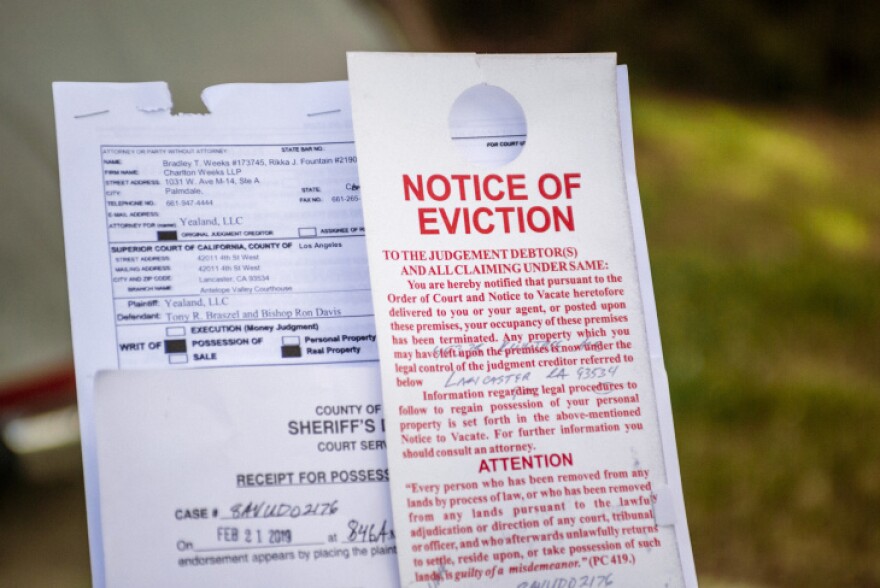
1. Non-Payment of Rent
Generally, landlords must provide a 10-day “Notice to Quit or Pay" to the tenant. This written notice informs the tenant that they have 10 days to pay the overdue rent in full or vacate the rental property. If the tenant pays the full amount within this notice period, the eviction process must cease.
However, if the rent remains unpaid after 10 days, the landlord can proceed with filing a complaint in court. It's important to note that North Carolina rent law typically allows for a 5-day grace period for rent payments before late fees can be charged, but the 10-day notice period for eviction begins after the rent is due, regardless of this grace period.
2. Lease Violations
These lease violations encompass a wide range of breaches of the lease agreement, which is a binding contract between the landlord and tenant. Common examples include:
- Unauthorized Occupants or Pets: Having individuals or animals living in the rental property that are not permitted by the lease.
- Property Damage: Causing damage to the property beyond normal wear and tear.
- Disturbing Neighbors: Repeatedly engaging in activities that disrupt the peaceful enjoyment of other residents.
- Subletting Without Permission: Allowing others to occupy the property without the landlord's consent, if prohibited by the lease.
North Carolina law does not always mandate a specific notice period for a lease violation before a landlord can file for eviction, unless the lease itself specifies a cure period. If the lease agreement includes a clause that allows for immediate termination upon certain violations, the landlord may proceed with the eviction filing without further notice to the tenant.
3. Illegal Activity
Engaging in illegal activity on the rental property can often lead to an expedited eviction process in North Carolina under specific statutes. Examples of such activities include drug-related or other criminal acts that threaten the health, safety, or peaceful enjoyment of other tenants or neighbors.
In cases of confirmed illegal activity, landlords may be able to issue an immediate “Unconditional Notice to Quit," requiring the tenant to vacate without an opportunity to cure the violation.
4. No-Fault Evictions
North Carolina does not have a system for true "no-fault" evictions—landlords must have a legally recognized reason to evict a tenant. However, in cases where the lease is terminated or not renewed, it is still possible to pursue what is often referred to as a no-fault eviction.
This typically occurs at the end of a lease term or when a landlord genuinely needs to regain possession for specific, non-tenant-fault reasons:
- End of Lease Term: If a fixed-term lease agreement expires and the landlord chooses not to renew it, and the tenant does not vacate, the landlord can initiate eviction. The required notice period for non-renewal depends on the lease term (e.g., 2 days for week-to-week, 7 days for month-to-month, 30 days for year-to-year).
- Landlord's Personal Use or Major Renovations: These situations typically require specific notice and must be pursued in good faith.
5. Damage to Property or Health and Safety Violations
Significant damage to the rental property caused by the tenant, beyond normal wear and tear, is a clear ground for eviction. This falls under lease violation, but specifically addresses the physical condition of the property. Landlords should document such damage thoroughly with photos and written records.
Additionally, a tenant's actions that create health and safety hazards on the premises can also lead to eviction. This aligns with a tenant's responsibility to maintain their unit in a clean and safe condition and comply with housing codes.
6. Squatters and Unauthorized Occupants
The concept of "squatter's rights" in North Carolina is primarily tied to the legal doctrine of adverse possession. This legal principle allows a person to claim legal ownership of a property they have occupied for a long period, even if they don't have the owner's permission. To successfully claim adverse possession in North Carolina, a squatter must meet several strict conditions:
- Continuous Possession: The squatter must have lived on the property for a continuous and uninterrupted period of at least 20 years.
- Hostile Possession: The occupation must be without the owner's permission.
- Open and Notorious Possession: The squatter's presence must be obvious and not hidden.
- Actual Possession: The squatter must physically occupy and use the property, treating it as their own.
- Exclusive Possession: The squatter cannot share the property with the actual owner or other unauthorized individuals.
North Carolina has taken steps to provide a more direct route for removing individuals who are not tenants and have no legal right to occupy a rental property. This differs from the standard eviction process in North Carolina for a tenant with a lease. These recent legislative efforts aim to provide an expedited legal procedure through an affidavit and law enforcement assistance for true squatter situations.
How to Serve an Eviction Notice in North Carolina?
Serving an eviction notice correctly is a critical first step in the eviction process in North Carolina. Any misstep in this stage can lead to significant delays, or even the dismissal of your case, forcing you to restart the entire legal procedures.
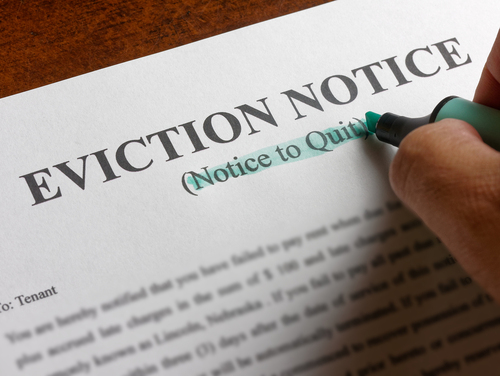
1. Choosing the Right Notice
The type of eviction notice you must serve depends on the specific reason for the eviction in North Carolina.
- 10-Day Notice to Quit or Pay (for Non-Payment of Rent): If a tenant fails to make their rent payment on time, the landlord must provide this written notice giving the tenant 10 days to either pay the full amount of overdue rent or vacate the premises.
- Notice for Lease Violations: For a lease violation other than non-payment of rent, North Carolina law generally does not mandate a specific notice period before filing for eviction. However, it is highly recommended to give the tenant a reasonable timeframe (e.g., 7 or 14 days) to remedy the issue.
- Immediate Notice to Quit: In severe cases involving confirmed illegal activity, North Carolina eviction laws may allow for an immediate notice to quit.
- Notice of Termination (for End of Lease Term): If you choose not to renew a lease, the notice period required depends on the tenancy term:
- Week-to-week: 2 days' notice
- Month-to-month: 7 days' notice
- Year-to-year: 30 days' notice
2. Including Mandatory Information
Regardless of the type, every eviction notice must contain specific, accurate information to be legally valid. This typically includes:
- The full name(s) of the tenant(s) and landlord.
- The complete address of the rental property.
- The specific reason for the eviction.
- The date the notice is issued.
- The deadline by which the tenant must comply (pay or vacate).
- A statement that if the tenant fails to comply, legal action will be initiated to regain possession of the property.
- The landlord's signature.
3. Delivering Notice with Proper Methods
North Carolina eviction laws specify acceptable methods to ensure the tenant receives due process. Recommended methods include:
- Personal Delivery: Handing the notice directly to the tenant. In North Carolina, sheriffs usually rely on personal delivery—physically handing the documents to the tenant at the rental unit.
- Certified Mail (with Return Receipt Requested): Sending the notice via certified or registered mail provides a paper trail proving that the notice was sent and received (or attempted to be received).
- Posting and Mailing: If personal delivery or certified mail is unsuccessful, some situations may allow for posting the notice conspicuously on the rental property (e.g., on the front door) and simultaneously mailing a copy via regular first-class mail.
4. Avoiding eviction mistakes
Landlords often make common mistakes when serving eviction notices that can jeopardize their case. To avoid these pitfalls and protect your landlord rights:
- Verify Notice Periods: Double-check that you are providing the correct notice period required by North Carolina eviction laws for the specific reason.
- Avoid Self-Help Eviction: Never attempt to evict a tenant by changing locks, shutting off utilities, or removing their belongings. These "self-help" methods are illegal in North Carolina and can result in significant penalties and legal action against the landlord.
- Document Everything: Keep detailed records of when and how the notice was served, including dates, times, and any witnesses.
- Seek Legal Aid: If you are unsure about any aspect of serving an eviction notice or the subsequent court procedure, consult with an attorney specializing in landlord-tenant law or seek legal aid.
Step-by-Step Eviction Process in North Carolina
Navigating the eviction process in North Carolina requires careful attention to the correct legal procedures. Following each step ensures compliance with tenant protections and avoids delays in court.
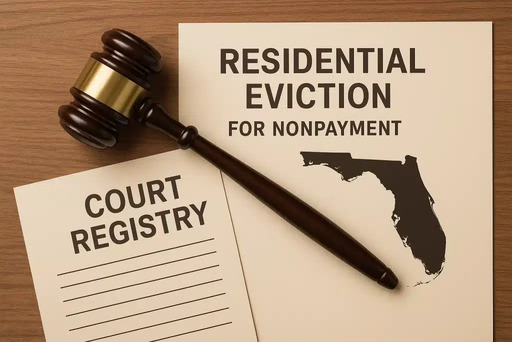
Step 1 – Serve the Correct Notice
This notice must be properly drafted with all mandatory information and delivered through an acceptable method. The specific notice period must expire before you can proceed to the next step. This crucial initial phase sets the groundwork for the entire eviction process in North Carolina.
Step 2 – File a Summary Process Complaint
If the tenant fails to comply with the demands of the eviction notice, the landlord can then initiate court procedure by filing a "Complaint in Summary Ejectment."
- Where to File: Most eviction cases in North Carolina are filed in the Small Claims Court in the county where the rental property is located. Small Claims Court handles cases where the amount of damages sought does not exceed $10,000. For claims exceeding this amount, the case would be filed in District Court.
- Required Information: The complaint form requires the landlord to state the grounds for eviction, provide details about the lease agreement It also require specify any outstanding rent payment or damages sought.
- Filing Fees: A filing fee, typically around $96 in Magistrate Court, must be paid at the time of submission.
Step 3 – Serve Summons & Complaint
Once the Summary Ejectment Complaint is filed, the Clerk of Court will issue a "Magistrate Summons". These documents officially notify the tenant of the lawsuit and the scheduled court hearing date.
Who Serves: The Summons and Complaint must be formally served on the tenant by a neutral third party. In North Carolina, this is typically done by the county sheriff's office or a certified private process server.
Methods of Service:
- Personal Service.
- Substituted Service.
- Posting and Mailing.
Timeline: The Summons and Complaint must generally be served within 5 days of filing, and the court hearing is usually scheduled within 7 to 30 days from the issuance of the summons.
Step 4 – Court Hearing or Default
This is where the case is presented before a magistrate (in Small Claims Court) or a judge (in District Court).
- Tenant's Response: A tenant is not typically required to file a written answer, but they must appear to present their defense. If the tenant fails to appear, the landlord may be granted a default judgment for possession.
- Landlord's Presentation: The landlord must attend the hearing and present evidence to support their claim for eviction. This includes:
- A copy of the lease agreement.
- Proof of the properly served eviction notice.
- Records of unpaid rent payment (if applicable).
- Evidence of lease violation.
- Any other relevant documentation.
- Judgment: If the magistrate or judge finds in favor of the landlord, a judgment for possession of the rental property will be issued. A money judgment for unpaid rent or damages may also be awarded if requested and proven.
Step 5 – Writ of Execution Issued
After the judgment for possession is granted, there is typically a 10-day appeal period during which the tenant can appeal the magistrate's decision to District Court. The landlord cannot physically remove the tenant during this appeal period.
- Requesting the Writ: If the tenant does not appeal within 10 days, or if they lose their appeal, the landlord can then return to the Clerk of Court and request a "Writ of Possession".
- Fees: There is an additional fee to obtain and serve the Writ of Possession.
Step 6 – Sheriff Enforces Eviction
This is the final stage of the eviction process in North Carolina, where the judgment is enforced.
- Sheriff's Role: Once the sheriff's office receives the Writ of Possession, the sheriff will usually provide the tenant with a notice (often 24 to 72 hours) of the impending lockout.
- Physical Removal: On the scheduled date, the sheriff will arrive at the rental property to supervise the removal of the tenant and their belongings.
- Tenant Protections for Belongings: The landlord must store the property for a certain period and provide the tenant an opportunity to retrieve it.
North Carolina Eviction Timeline & Costs
The eviction process in North Carolina involves several stages, each with its time frame, cost, and risks of delay. Landlords should plan accordingly to avoid extended vacancy or legal issues.
Documentation Landlords Must Save for Eviction in North Carolina
Throughout the eviction process in North Carolina, landlords are responsible for proving their case to the court. Without proper documentation, even a valid unlawful detainer claim can be dismissed.
1. Lease Agreement and Payment Records
The original lease agreement is one of the most important documents in any eviction case. It outlines the tenant’s responsibilities and helps the judge understand the terms that were violated. Also include:
- Payment history
- Missed rent payments
- Late fees (if applicable)
- Any grace period or rent-related provisions
2. Copies of Notices Served with Proof
Without this, your legal procedures may be challenged, and the tenant could argue they were not properly informed. Whether it's a 10-day notice to pay or quit or a notice for lease termination, you must keep:
- A copy of each notice
- Proof of delivery (e.g., photo of notice posted, certified mail receipt, process server affidavit)
3. Photos, Videos, Witness Notes for Lease Violations
When the eviction process in North Carolina is based on property damage, illegal activity, or safety concerns, you’ll need visual or testimonial evidence:
- Dated photos or videos of the issue
- Repair bills or property inspection reports
- Statements from neighbors or property staff
This documentation strengthens your case in court and helps the judge issue a clear judgment.
4. Communications via Email or Certified Mail
Any written exchanges with the tenant should be saved, especially when discussing:
- Lease terms or renewals
- Complaints or violations
- Payment plans or settlement offers
Using email or certified mail helps verify that both parties were aware of issues before the eviction escalated. This can also protect you from claims of violating tenant rights or tenant protections.
Practical Tips for North Carolina Landlords to Avoid Eviction
While the eviction process in North Carolina exists to protect both landlords and tenants, going through it can be time-consuming and stressful. Whenever possible, it’s best to prevent disputes before they escalate into court filings.
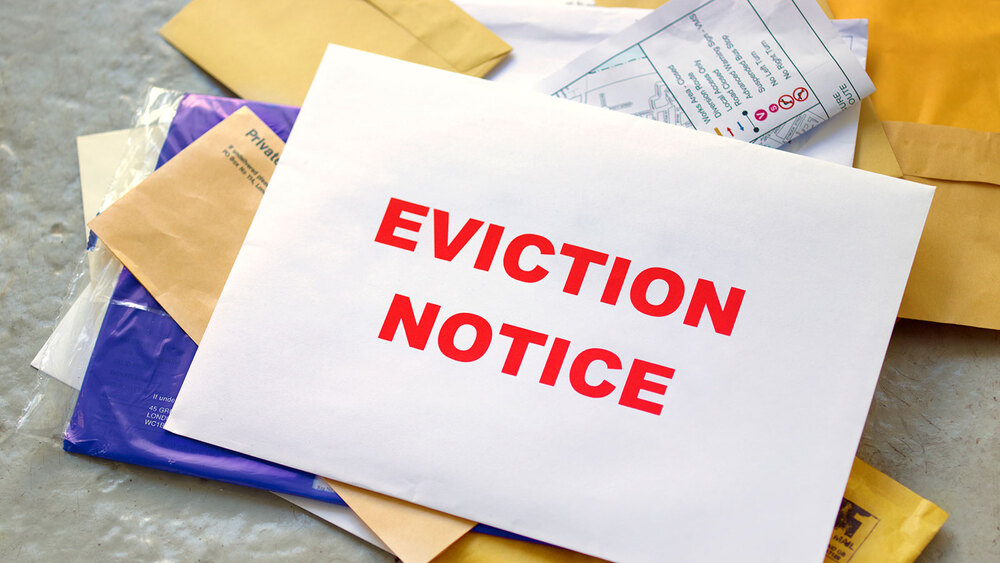
Use professional Lease Agreement forms
A solid, legally sound lease is your first line of defense. This makes enforcement easier and protects your landlord rights if the lease needs to be terminated. Use state-specific lease templates that clearly outline:
- Rent due dates and late penalties
- Rules on property use, guests, pets, and maintenance
- Procedures for lease violations
Run Eviction Check before leasing
Beyond credit and criminal background checks, an eviction check is essential to ascertain a prospective tenant's rental history. This helps you avoid high-risk renters with a history of unlawful detainer cases or nonpayment issues.
Avoid Self-help eviction and Ensure Proper notice
North Carolina law strictly prohibits "self-help" evictions, where landlords attempt to force tenants out without a court order (e.g., changing locks, shutting off utilities, removing personal property). These “self-help” methods are illegal in North Carolina and may expose you to lawsuits for violating tenant rights.
Document property condition with Wear and Tear guide
Before and after a tenancy, document the condition of your rental property with photos, videos, and a written checklist. This helps distinguish between normal wear and tear and actual damage—an important distinction if the eviction process is based on property misuse or negligence.
Also, ensure the unit meets North Carolina smoke detector requirements, as missing or non-functional alarms can trigger legal issues or tenant protections.
Seek legal aid for complex cases
If you're dealing with a tenant who files legal defenses, occupies government-assisted housing, or raises discrimination claims, consider getting help. Legal aid or a qualified attorney can guide you through more complex legal procedures, ensuring you remain compliant with tenant protections while defending your landlord rights.
Bottom Line
The eviction process in North Carolina can feel overwhelming without a clear understanding of your rights, responsibilities, and the required legal procedures. From serving notices to attending court hearings, every step must be handled carefully to avoid delays or legal setbacks. By staying updated on current eviction laws, documenting everything, and avoiding common mistakes, landlords can protect their investments while respecting tenant rights.
FAQs
1. How long does the eviction process in North Carolina usually take?
Typically, it takes 30–55 days, depending on how quickly the court schedules a hearing, whether the tenant contests the case, and how soon the sheriff enforces the final judgment.
2. Can landlords evict tenants without going to court in North Carolina?
No. North Carolina law requires landlords to follow formal legal procedures. Evicting a tenant without a court order (e.g., changing locks or removing belongings) is illegal and may result in penalties.
3. What happens if a tenant doesn’t show up to the eviction hearing?
If the tenant doesn’t appear, the landlord can request a default judgment. If granted, the court issues a Writ of Possession, allowing the sheriff to proceed with the eviction.
4. What is the cost of filing for eviction in North Carolina?
Expect to pay about $180–$250 total, including court filing fees, service of process, and enforcement costs. These may vary slightly by county.
5. Can I accept partial rent and still proceed with eviction?
Accepting partial rent may delay or reset the eviction timeline unless it’s clearly documented that the payment does not waive the eviction. Check with an attorney if you're unsure.



